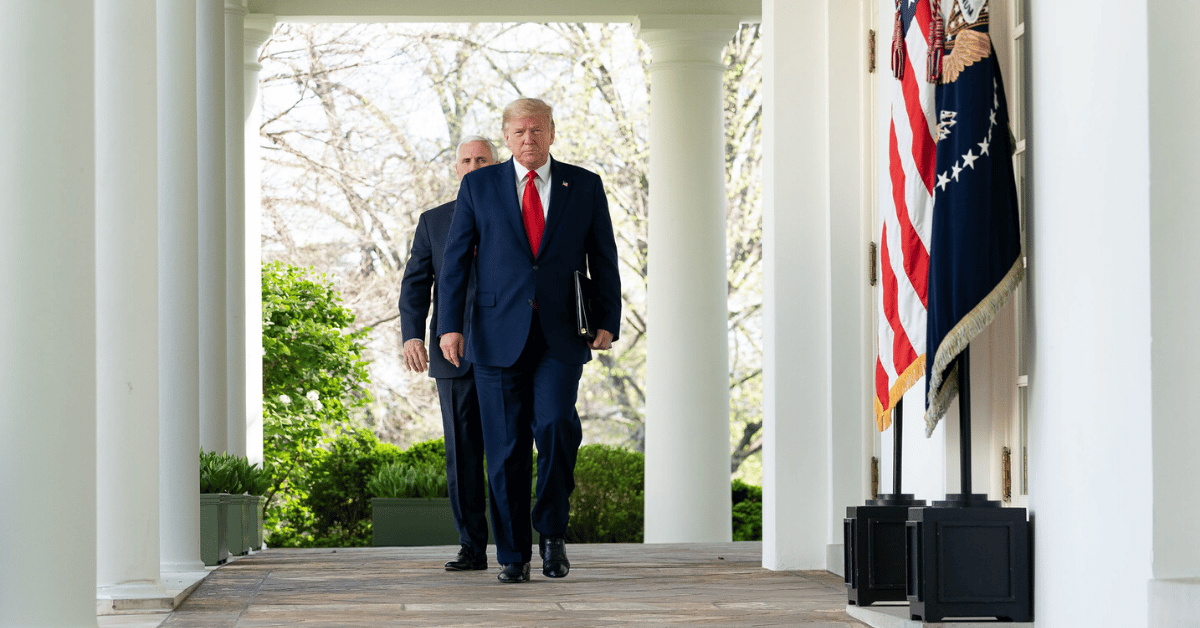






Derrick Evans, a former Georgetown Preparatory School classmate of Brett Kavanaugh, has initiated a defamation lawsuit against HuffPost. The lawsuit accuses HuffPost of recklessly publishing false information about Evans' alleged involvement in illegal drug transactions.
The National Review reported that Evans, a graduate of Georgetown Prep alongside Supreme Court Justice Brett Kavanaugh, is challenging HuffPost in court over a contentious article.
Written by journalist Ashley Feinberg, the piece originally alleged a rampant party culture at Georgetown Prep linked to the tragic death of David Kennedy in 1984.
Feinberg's report, citing an anonymous alumnus, claimed that Evans and Doug Kennedy, David Kennedy's brother, were involved in obtaining drugs that contributed to David's fatal overdose. This allegation surfaced amid the scrutiny of Kavanaugh's high school years during his Supreme Court nomination process.
The narrative took a turn when Doug Kennedy's employer, Fox News, prompted HuffPost to amend the article. HuffPost revised the piece to exclude Doug Kennedy from the allegations but maintained that Evans was implicated in the drug deal, according to an affidavit mentioned by the New York Times.
The lawsuit filed by Evans argues that even the corrected article defamed him by falsely asserting his involvement in the drug transactions. The correction, instead of clarifying, further implicated Evans without adequate proof.
According to the lawsuit, there were readily available public records that could have disproved the allegations against Evans. However, these were allegedly ignored by HuffPost, which is accused of failing to conduct a thorough investigation before publishing the claims.
Evans' legal challenge highlights significant concerns over journalistic integrity and the verification of sources in reporting. The case points out that Feinberg and her editors at HuffPost did not sufficiently check the facts or seek out Evans for comment before going to press.
The suit alleges that Feinberg's lack of diligence and the subsequent publication of the false claims were acts of recklessness or possibly done with knowledge of their falsity.
It stresses that HuffPost published the allegations "in reckless disregard of the truth."
This case has now moved to the U.S. District Court for the Southern District of Mississippi, where it will be further examined. The outcomes could have implications for media practices and the standards required for journalistic research and reporting.
The legal proceedings against HuffPost not only question the accuracy of the report by Feinberg but also probe the ethical obligations of journalists to prevent harm by verifying their stories. The lawsuit underscores the potential damage to reputation caused by unverified news reports.
As the legal battle unfolds, it serves as a critical reminder of the responsibilities media outlets have toward individuals who are subjects of their stories.
This case could potentially set a precedent on how media entities handle the delicate balance between reporting and respecting individual rights.
In response to the lawsuit, the narrative within the original HuffPost article has been significantly altered, with current versions no longer mentioning the incident related to David Kennedy's death. This change reflects the ongoing legal and ethical challenges faced by the publication.
The lawsuit and its claims against HuffPost resonate beyond the courtroom, affecting public trust in media. They highlight the consequences of journalistic errors and the importance of reliable reporting in shaping public perception.
The outcome of this case may influence how news organizations manage sensitive stories, particularly those involving public figures and legal accusations. It will likely prompt media professionals to reevaluate their approaches to sourcing and reporting to avoid similar legal confrontations.
The Evans case against HuffPost stands as a significant example of the conflict between media freedom and personal reputation, and it will be closely watched for its impact on journalism ethics and practices.
In conclusion, Derrick Evans' lawsuit against HuffPost serves as a pivotal legal and ethical examination of journalism standards. It challenges the practices of news reporting and emphasizes the necessity for thorough verification and respect for the truth in journalistic endeavors. As the case progresses, it will undoubtedly contribute to the ongoing dialogue about media responsibility and ethical journalism.



